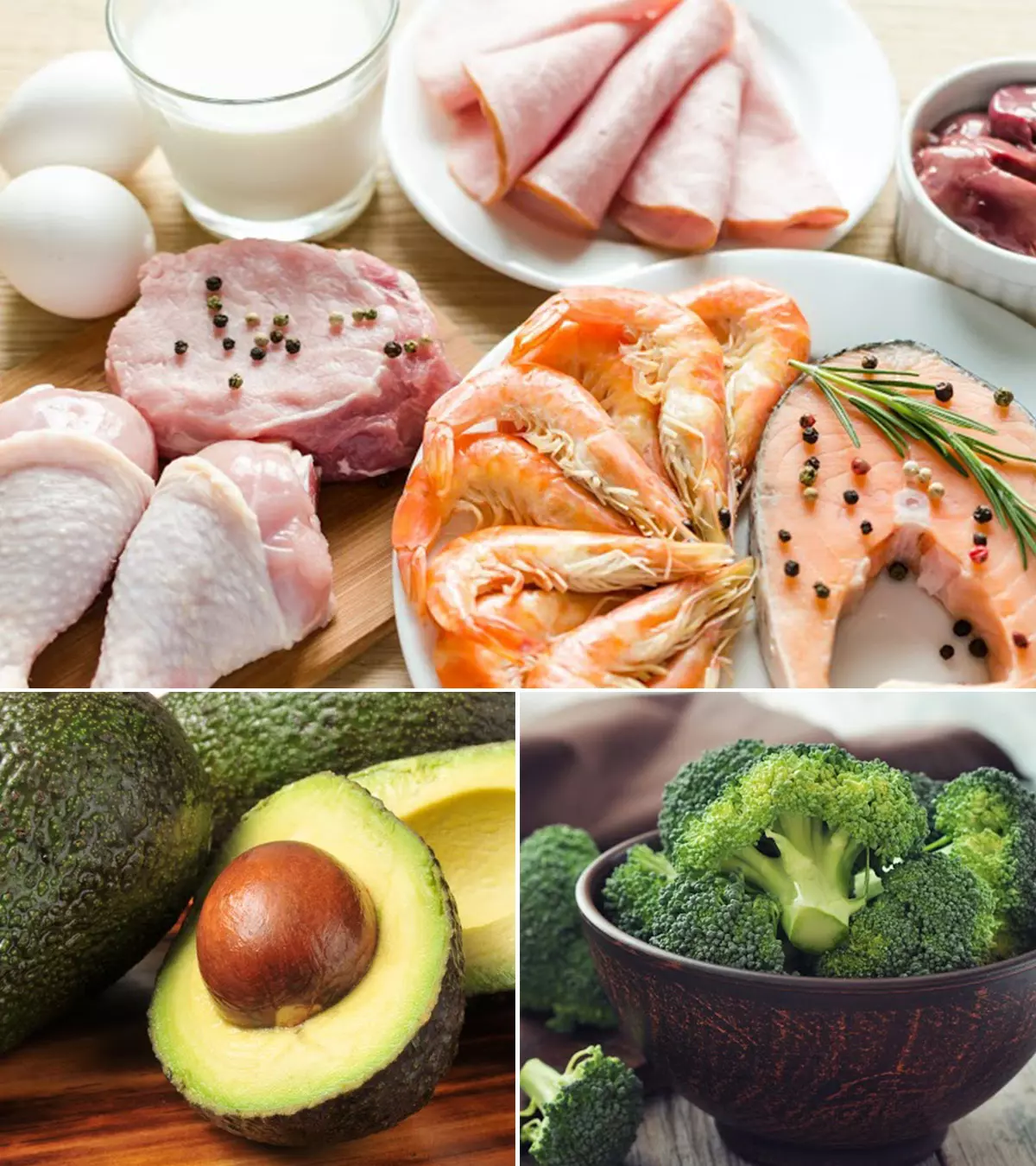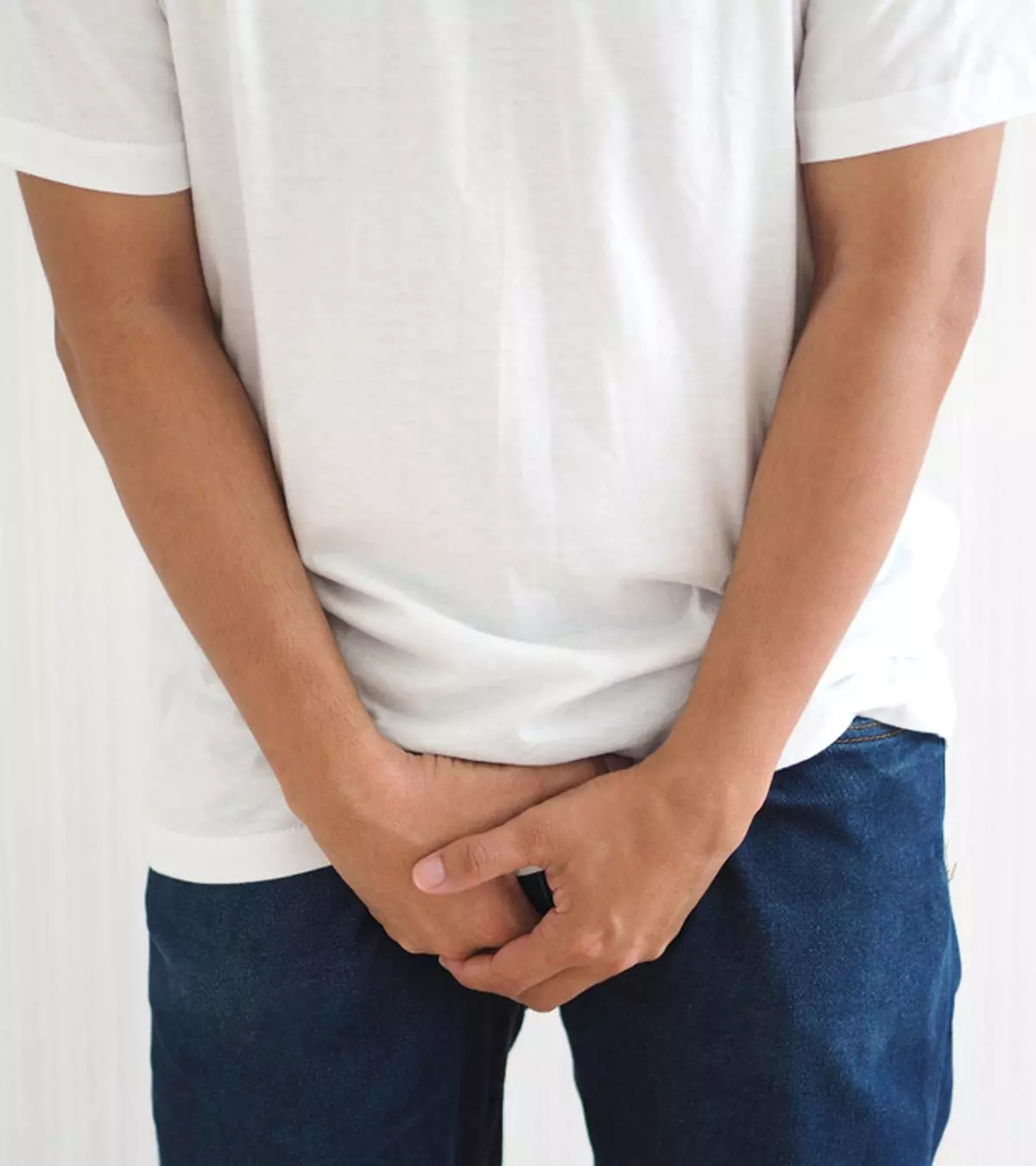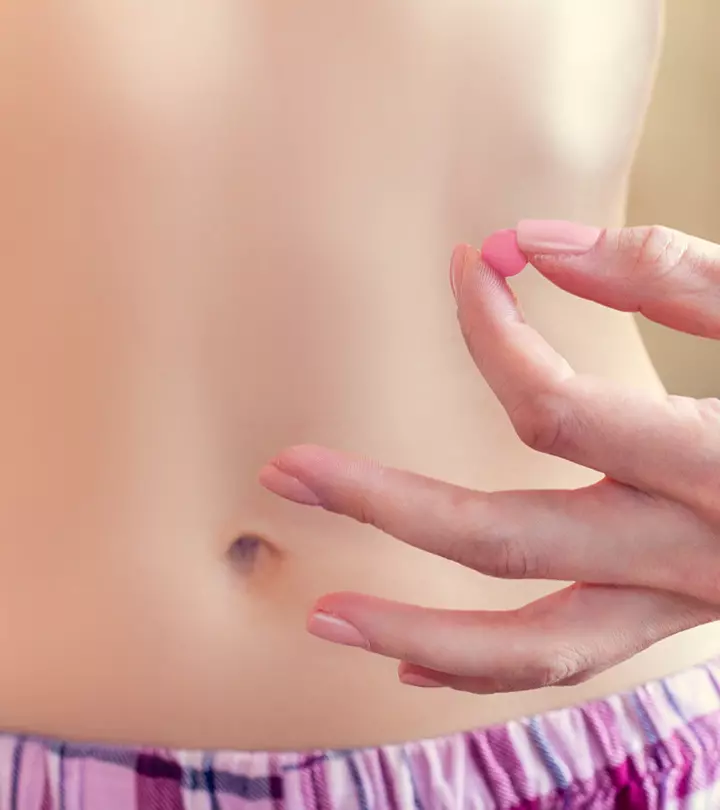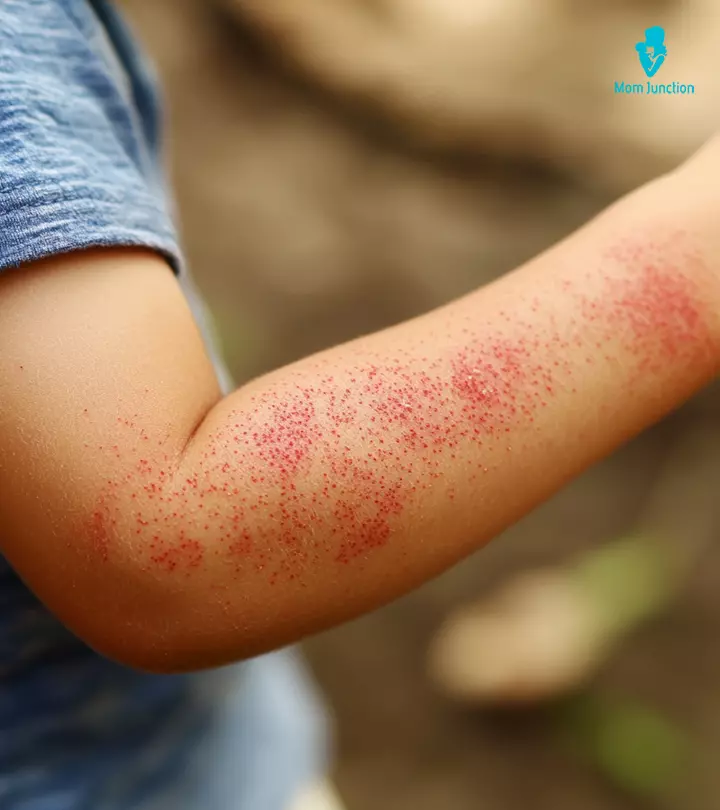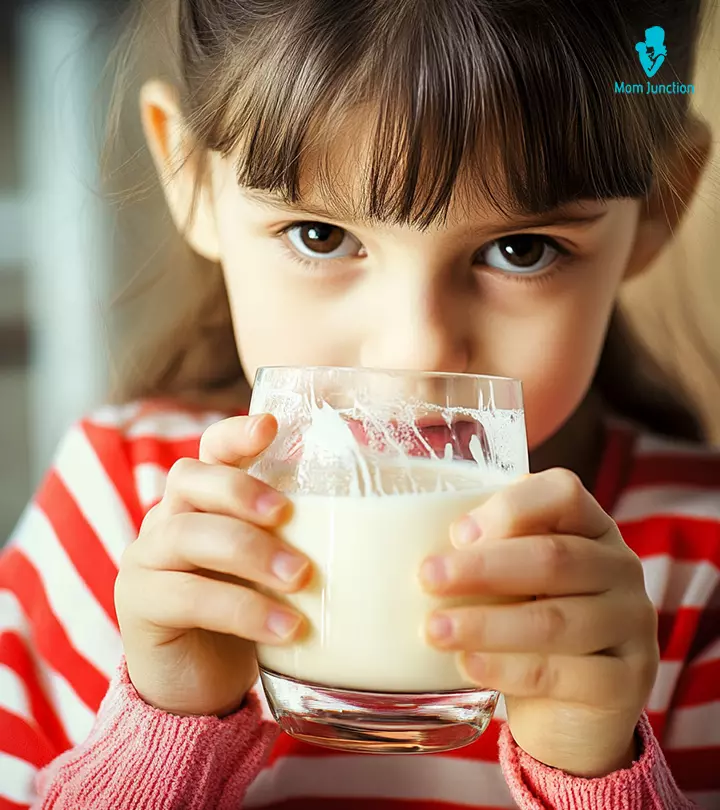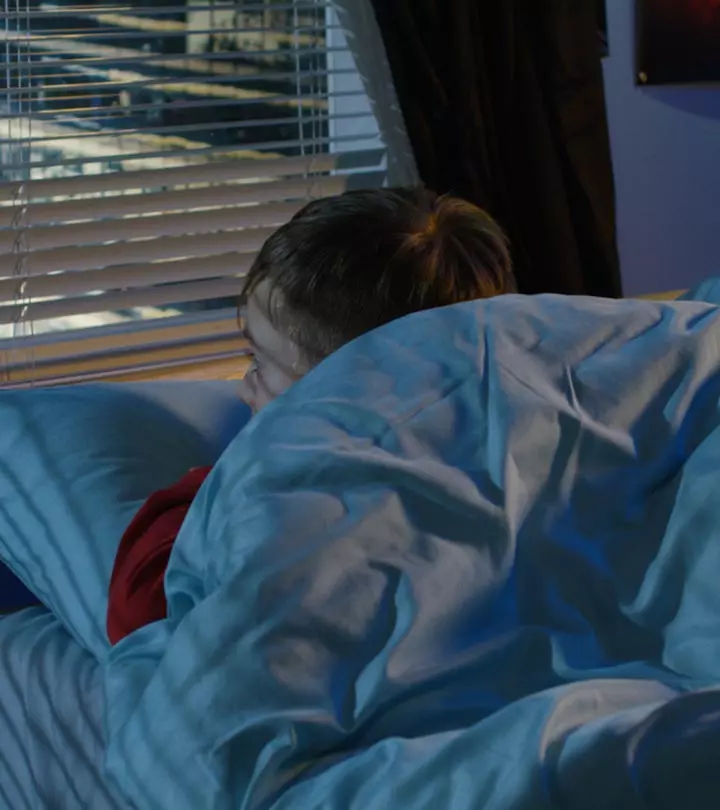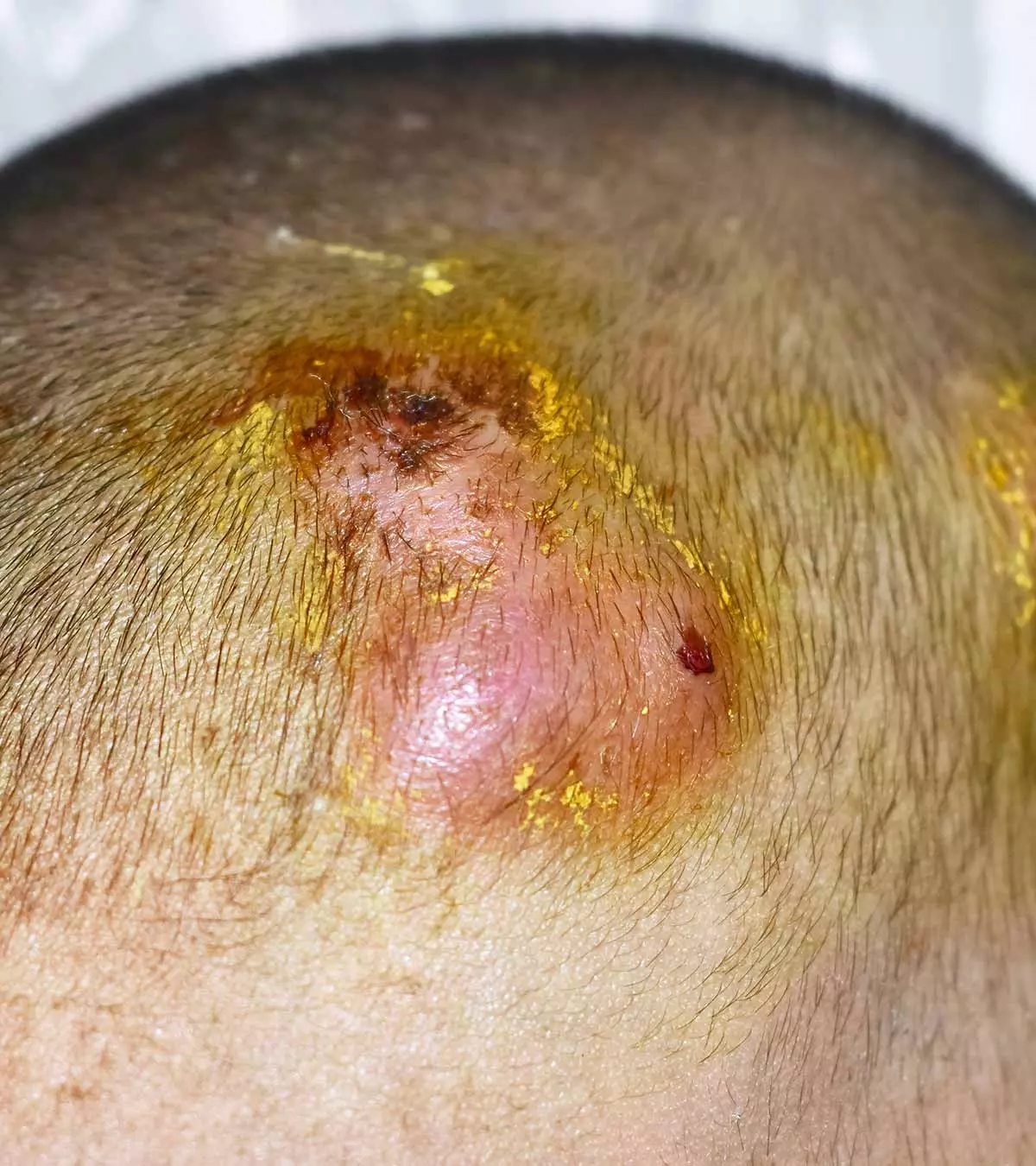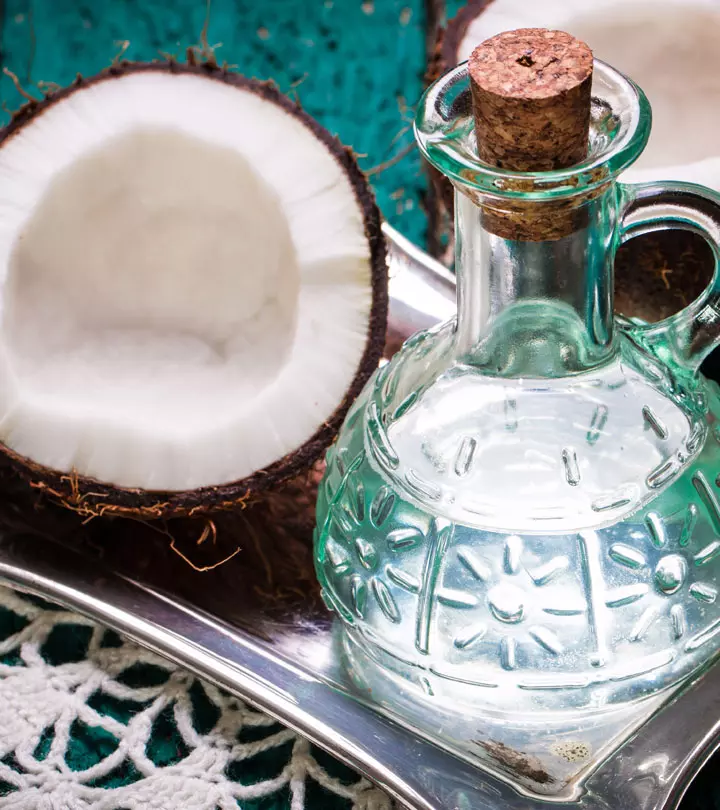
Image: ShutterStock
Occasional heartburn in teenagers is not a cause of concern. This is not a cardiac symptom, and it is the regurgitation of stomach acid to the esophagus, causing burning pain in the chest and throat. It is also known as pyrosis or acid regurgitation. Usually, teens may experience heartburn after eating some foods or drinks, and it resolves without treatment in a short period. However, more frequent heartburn can signify gastroesophageal reflux disease (GERD) that requires medical evaluation. Read on to know the causes, risk factors, symptoms, diagnosis, treatment, and prevention of heartburn in teens and when to seek medical care.

Key Pointers
- Overeating, obesity, lack of sleep, infections, stress, and medications may trigger heartburn in teens.
- Heartburn can be accompanied by symptoms such as nausea, bad breath, sour taste, cough, swallowing difficulties, and sore throat.
- OTC medications, changes in food habits, adequate exercise and sleep, and avoiding reflux-inducing foods can help alleviate heartburn in teens.
- However, if symptoms worsen or do not improve, a proper diagnosis and treatment are necessary.
- Treatment options for severe heartburn may include antacids, antibiotics, and surgical procedures (rare).
Signs And Symptoms Of Heartburn In Teens

The prominent symptoms of heartburn are burning sensation in the chest or throat and taste of acid or food in the mouth.
The following symptoms are often associated with heartburn (1):
- Sour taste
- Nausea
- Vomiting
- Halitosis (bad breath)
- Teeth damages
- Cough
- Abdominal discomfort
- Bloating, belching, and flatulence
- Trouble in swallowing
- Sore throat
Your teen may experience heartburn while lying down or bending after eating. Although heartburn can be associated with a heart attack in adults, it may not apply to teens. This chest discomfort or chest pain in teens due to acid reflux can be alleviated with some over-the-counter antacids. However, if the problem persists, you may consult a doctor to identify the exact cause and treat it.
Causes Of Heartburn In Teenagers

Heartburn can be caused due to GERD, a condition in which acid from the stomach flows up to the esophagus due to weakness or other problems of the lower esophageal sphincter. Additionally, teenage obesity has significantly increased the occurrence of GERD, affecting one in every four teens (13).
Heartburn may also often be caused due to the following factors besides GERD (2) (14):
- Obesity, without GERD
- Overeating or eating very fast
- Lying down immediately post meals
- Lying down in a supine position on a full stomach
- Late night snacking
- Stress
- Lack of sleep
- Dyspepsia, or indigestion
- Medications for asthma, pain, and allergies (antihistaminesiMedications that help relieve allergic symptoms. )
- Cigarette smoking
- Alcohol consumption
- Eating habits, such as eating late at night or consuming large meals
- Any neurological diseases at a young age
- Previous surgery of the esophagus
- Bacterial infection with helicobacter pylori
Heartburn can also be caused or worsened by certain foods such as (3):
- Spicy foods
- Fried or oily foods
- Vinegar
- Tomato sauce and foods containing preservatives
- Chocolates
- Coffee or tea
- Soft drinks
 Experts say
Experts sayIf your teen has heartburn that is frequent, excessively painful, not related to dietary factors and despite exercising and adequate rest seek a doctor’s advice.
Risks And Complications Of Heartburn In Teens

Heartburn can be diagnosed based on the symptoms and medical history of your teen. If dietary and lifestyle changes and medications do not improve it, your doctor may order tests to confirm the cause of heartburn. It can be (4):
- Esophagitis (inflammation of the esophagus)
- Ulcerations in the esophagus
- Narrowing of the esophagus followed by damage (esophageal stricture)
- Hiatus hernia (the upper part of the stomach protrudes into the chest cavity through the diaphragm, and can be exacerbated by eating late at night)
- Dry cough and other respiratory complications
- Change in voice
 Experts say
Experts sayHeartburn may interrupt sleep and often worsen asthma problems. It may also be associated with inflammation of the larynx (laryngitis). Long-standing acid reflux in teens may cause changes in the esophagus, known as Barrett’s esophagus. It is a precancerous change and requires medical care.
Diagnosis Of Heartburn In Teenagers
Heartburn can be diagnosed based on the symptoms and medical history of your teen. Doctors may assess the frequency and severity of symptoms and lifestyle factors to determine if a teen has GERD rather than occasional heartburn. The infection is often caused due to the consumption of contaminated food or water. If dietary changes and medications do not improve it, your doctor may order tests to confirm the cause of heartburn. It can be (5):
- Radiography (X-ray): This is a visualization of the esophagus under an x-ray with the help of contrast liquidiA chemical that highlights anomalies when it is ingested during radiological procedures. . Your teen should swallow contrast liquid, such as barium, during this procedure. This method helps to identify structural defects in the esophagus. Contrast may cause nausea and light-colored stool, but it is not something to worry about.
- Esophageal impedance and pH monitoring: This test helps to identify the acid reflux using specific tubes.
- Upper gastrointestinal endoscopy and biopsyiA diagnostic test involving microscopic examination of tissues. : This test could give clear information about esophageal tissue damages from acid and sphincter function. Your doctor may also collect samples for biopsy during endoscopy. Usually, endoscopy is done in severe and moderate cases of heartburn.

Doctors may order blood tests, breath tests, and stool tests to exclude helicobacter pylori infection that could cause heartburn.
Treatment For Heartburn In Teenagers
Your doctor may suggest dietary modifications and lifestyle changes to reduce acid reflux. Chewing sugarless gums after eating and sleeping on the side or with an elevated head position may be useful in some teens. If conservative management fails to resolve heartburn, your teen will have to undergo pharmacological treatments.
Heartburn can be treated with medications depending on the causes. The following medications are used (6):
Almost all of the following drugs, except prokinetics, are available OTC (over the counter), one or two doses may be taken for acute relief. But a doctor’s advice should be sought if they are needed more than that not only because they have potential adverse effects but also because their abuse may mask the underlying condition which could be dangerous.
- Antacids: This medication neutralizes stomach acid, and it is available as Maalox, Alka-Seltzer, Riopan, Mylanta, etc. Seek a doctor’s advice for dosing since it may cause side effects such as constipation and diarrhea. Also, prolonged consumption of antacids for symptom relief is not advisable and treatment of cause is needed to avoid long-term complications of acid reflux.
 Point to consider
Point to consider
- H2 blockers: These drugs decrease the production of stomach acid. Cimetidine (Tagamet AB), ranitidine (Zantac 75), or famotidine (Pepcid) are H2 blockers. In many cases, older children and teens may be prescribed comb ination of antacids and H2 blockers, where antacids will neutralize stomach acid where H2 blockers will stop the production of acid (15).
- Proton pump inhibitors (PPIs): These drugs also reduce stomach acid production. omeprazole (Zegerid), esomeprazole (Nexium), and pantoprazole (Protonix) are a few examples of PPIs. Make sure to take this medication on an empty stomach, 20-30 minutes before the meal (14).
- Prokinetics: These medications induce faster emptying of stomach contents. Bethanechol (Urecholine) and metoclopramide (Reglan) are prokinetics available on prescription. These drugs may cause nausea, diarrhea, and tiredness. Prokinetics should not be taken with other anti-reflux medications.
Note: Consult your teen’s doctor for appropriate doses. Over-the-counter medications are not viable a solution for persistent heartburn.
The following treatments are often given to resolve the underlying conditions that cause heartburn:
- Triple therapy: If your teen has heartburn due to gastritis caused by helicobacter pylori infection, your doctor will recommend antibiotic therapy. This treatment regime includes amoxicillin, clarithromycin, and a PPI in recommended doses (7).
Dave Devine, a blogger, shares his experience of being diagnosed with a stomach ulcer and says, “Aged just 14, I fell ill, and my GP eventually diagnosed an ulcer and referred me for the standard test. The hospital gave me stuff to expand my stomach, then I was given barium meal and x-rayed. The stomach ulcer was confirmed.” However, later in life, he found that he had a helicobacter pylori infection that was causing heartburn and other symptoms. Sharing this astounding finding, he says, “I was given a simple finger-prick blood test to confirm the presence of Helicobacter Pylori, and given a week-long course of strong dose Amoxicillin/ Losec and Metronidazole… After the week, I was re-tested, and the bug was gone… After three days, I ate my very first pain-free Indian curry, and I drank my first lager — with no problem (i).”
- Surgery: Nissen fundoplication under laparoscope is a surgical procedure to correct weak sphincters. Fundoplication is effective in controlling acid reflux for the long-term (15). The upper part of the stomach is wrapped around the lower part of the esophagus during this surgery. Endoscopic sewing may be done in some cases. Post surgery, strict dietary and lifestyle modifications are required to prevent recurrence.
Remedies For Heartburn In Teenagers
The following remedies are suggested by doctors to reduce or prevent acid reflux from the stomach. Your teen may require medical treatments if dietary and lifestyle modifications do not resolve it. The remedies to prevent heartburn include (8) (15):
- Cutting down weight if your teen is overweight or obese
- Eating smaller portions of food, slowly and not overeating
- Eating two to three hours before bedtime and remaining in an upright position
- Getting enough exercise and adequate sleep
- Destressing
- Quitting smoking and avoiding secondhand smoke
- Avoiding foods that cause reflux
- Wearing loose clothes, especially around the waist
- Keeping the head raised at least 5-6 inches off the bed using pillows
You may encourage your teen to consume healthy food and do some exercises to avoid weight gain and to improve overall health. However, there is no approved diet to prevent heartburn, and the triggering foods may vary among individuals.
Foods To Avoid In Heartburn
Dietary changes can have a major impact on your teen’s heartburn problems. They should not consume foods and drinks that often worsen acid reflux. You may ask them to avoid (9) (14):
- Fried and fatty foods
- Coffee and tea
- Spicy foods
- Tomato sauce
- Citrus fruits and products
- Dairy products
- Chocolates
- Carbonated drinks
- Foods with added preservatives
- Canned food
These are foods that usually trigger or increase heartburn. If your teen experiences heartburn after eating certain foods, ask them to avoid those.
When To See A Doctor?
You may seek medical care if the heartburn in your teen does not resolve with dietary and lifestyle changes. The following may require immediate attention in teens with heartburn:
- Severe vomiting
- Hematemesis (vomiting of blood); Often looks like ground coffee
- Trouble breathing
- Repeated respiratory infections
- Throat pain while swallowing
- Reduced food intake
- Weight loss
- Dehydration
- Tarry stools
- Severe abdominal pain
Frequently Asked Questions
1. Does drinking water help heartburn?
Consuming foods that contain high quantities of water, such as cucumber, watermelon, lettuce, celery, herbal tea, and broth-based soups could help in diluting the stomach acids (10).
2. Is Sprite good for acid reflux?
There is insufficient evidence to support the theory carbonated beverages such as sprite or coke might soothe acid reflux or GERD (11).
3. How long does teen GERD last?
GERD might usually last up to a couple of hours in teens. However, if your teen experiences it for a longer time, continues for several days, or develops additional symptoms, it is advised to contact your doctor (12).
Heartburn in teenagers is not uncommon and usually results from poor lifestyle choices such as junk food, smoking, alcohol consumption, erratic eating and sleeping schedules, etc. Untreated heartburn can at times lead to certain long-term complications. The diagnosis of heartburn is usually made with the help of medical history, but some cases may need further investigations such as x-rays, endoscopyiA diagnostic test involving a thin tube containing a camera inserted inside the body from the mouth to look inside the body. , bioscopy, etc. Dietary modifications, lifestyle changes, and medications can help manage heartburn in teenagers.
Infographic: Can Heartburn In Teens Be Cured With Lifestyle Changes?
Lifestyle and diet could be causing factors for heartburn in teens. Maintaining a healthy lifestyle helps reduce heartburn symptoms even if other reasons cause it. Check out the infographic for lifestyle changes to improve heartburn in teens.
Some thing wrong with infographic shortcode. please verify shortcode syntax
Illustration: Heartburn In Teens: Causes Symptoms And Treatment
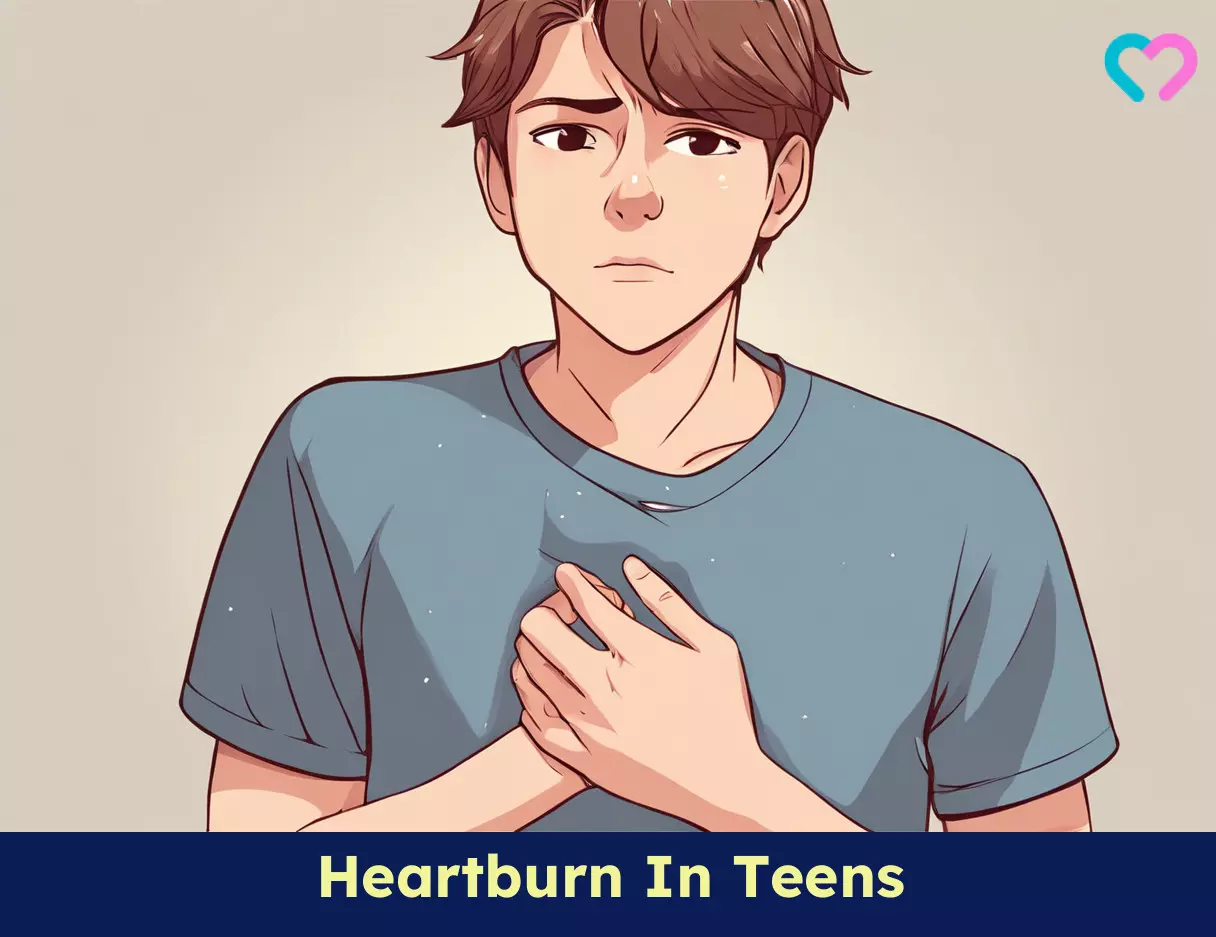
Image: Stable Diffusion/MomJunction Design Team
Gain expert insights about GERD in children, ways to manage its symptoms and promote your child’s digestive health, by a medical professional
Personal Experience: Source
MomJunction articles include first-hand experiences to provide you with better insights through real-life narratives. Here are the sources of personal accounts referenced in this article.
i. BARRY MARSHALL;
https://davedevine.wordpress.com/2010/04/24/barry-marshall/
References
1. Reflux in Children; U.S. National Library of Medicine
2. Heartburn; healthdirect; Australia Government – Department of Health
3. Heartburn; American Academy of Family Physicians
4. GERD (Gastroesophageal Reflux Disease) in Children; University of Rochester Medical Center (URMC)
5. Gastroesophageal Reflux Disease—Adolescent; Beth Israel Lahey Health; Winchester Hospital
6. Drew C. Baird et al.; Diagnosis and Treatment of Gastroesophageal Reflux in Infants and Children; American Family Physician (2015).
7. Shaman Rajindrajith et al.; Helicobacter Pylori Infection in Children; Saudi Journal of Gastroenterology (2009).
8. GERD (Gastroesophageal Reflux Disease) in Children; Lucile Packard Children’s Hospital Stanford
9. Ai Kubo et al.; Dietary guideline adherence for gastroesophageal reflux disease; BMC Gastroenterology (2014).
10. GERD Diet: Foods That Help with Acid Reflux (Heartburn); The Johns Hopkins Medicine.
11. T Johnson et al., Systematic review: the effects of carbonated beverages on gastro-oesophageal reflux disease; Alimentary Pharmacology & Therapeutics (2010).
12. Gastroesophageal Reflux Disease (GERD); KidsHealth.
13. An Adult Disease That More Teens Are Getting; Memorial Care
14. GERD in Children and Adolescents; North American Society For Pediatric Gastroenterology, Hepatology And Nutrition
15. Gastroesophageal Reflux (GER) and Gastroesophageal Reflux Disease (GERD) in Children and Adolescents; National Institute of Diabetes and Digestive and Kidney Diseases (NIDDK)
Community Experiences
Join the conversation and become a part of our nurturing community! Share your stories, experiences, and insights to connect with fellow parents.
Read full bio of Dr. Pooja Parikh
Read full bio of Dr Bisny T. Joseph
Read full bio of Swati Patwal
Read full bio of Anindita Ghatak








